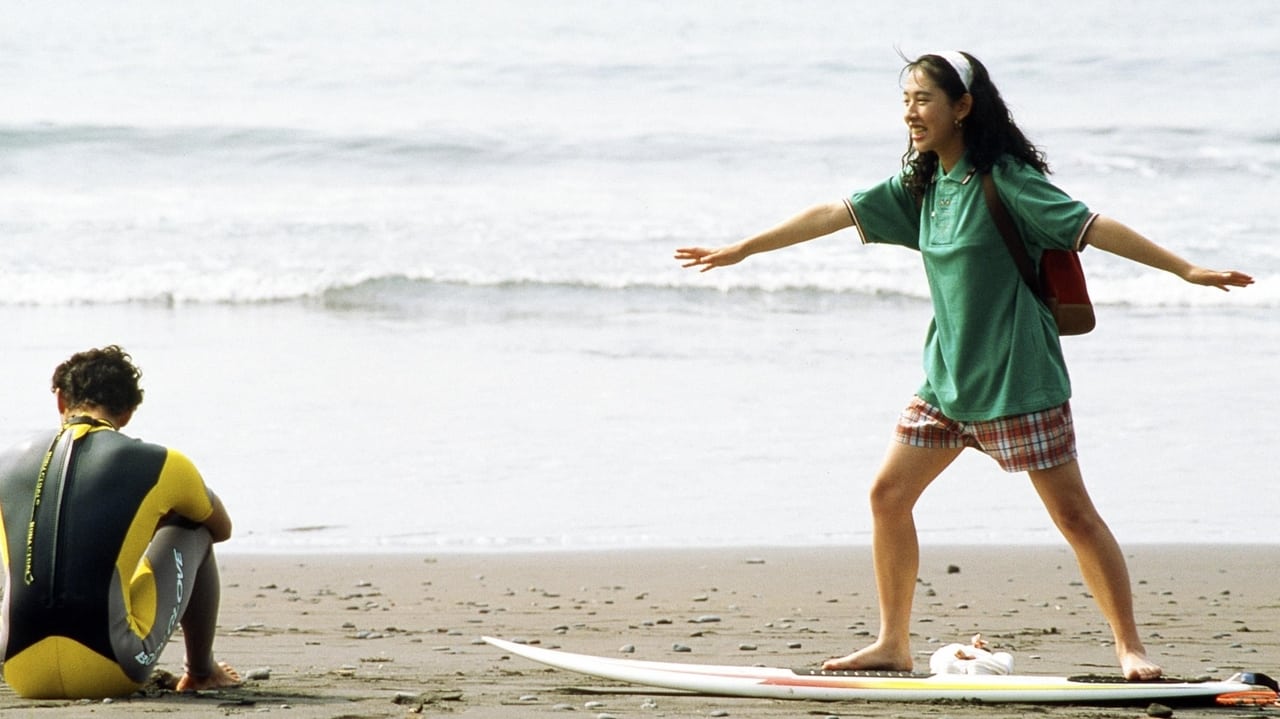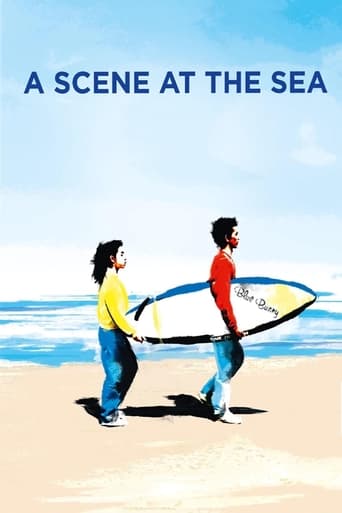

When we think about Japanese art, one of the first images we have is the "Great Wave from Kanagawa" realized by Hokusai. If the artist would have been a Westerner we will have for sure the sea and mt. Fuji as screen not as main subject. However we are in Japan and here the aesthetics is related to what is transitory, changeable as the snow on Fuji or the waves of the Ocean. So, this can be considered an achievement given by Zen. Nature is the main element of art. Art shouldn't be too much refined since should be part of a World unstoppable. If this movie have been filmed by Kubrick or Allen we would have been in front of eyes a masterpiece made by screenplay, plot,music costumes and particulars. We would have an artificial creation. The nature transformed by the mind of man. As marble that become the David by Michelangelo. here, however, we have an essential movie made by what is essential in our life. The nature. As the ceramics of Japan rough and deformed but still in harmony with nature to which they belong. So Kitano is at the opposite side of the Western production. And thus makes a real masterpiece of the East. The plot is simple and develops around four characters essentially. The young couple of deaf lovers, the silence that surrounds them and the sea. During all the film we have the soundtrack made by Hisaishi Joe that covers the apparent lack of communication. Yes, apparent. During the three quarters of the movie, in fact, we find a third view filming that portrays the young couple life as quite monotone and with no communication and emotions. We see the young boy trying to surf and the young girl watching him. We witness a love both tender and tragic. Incapable of being expressed. However, we will realize to have done a great mistake. Indeed, as the music rises more intense, at the end of the movie we have a new character. The main one. As we realize, admiring the "Great Wave" engraved by Hokusai,that the wave stands as the subject, here we understand that the main character is the sea. This was the place in which the young couple meet and had fun, felt emotions and dreamed. In other word the only and real witness of their love. We were used to see only the routine of the two young guys but the sea not. He witnesses everything. And in the end, when everything seems to be finished without a great surprise, the sea has his turn to tell us the real love story between them. In a short sequence we see their emotions, their hopes and their happiness. We have in front of our eyes the remaining parts of their routine. A splendid one, made of hugs, laughs and smiles while enjoying a beer. And we cannot feel anything else than a lack. The one given of the love felt by those ones that only the sea in a summer can keep. Silently.
... View MoreTakeshi Kitano took a break from gangster and Yakuza pictures to direct "A Scene By The Sea", a low key flick about a deaf garbage collector who is determined to learn how to surf.It's a simple story, Kitano's camera often stagnant, watching from afar as our hero stares longingly out at the ocean, builds a surfboard and slowly evolves from an inept surfer to a competent sportsman.Because both our hero and his girlfriend are deaf, Kitano opts for a unique aesthetic which tries to convey their disabilities through cinematic means. For example, the film's dialogue is almost completely muted, there are long stretches of silence, no sign language and our heroes are oblivious to anything which occurs outside their field of vision.This is thus a purely visual film, Takeshi forcing us to view the world the way a deaf person would. Throw in a soundtrack by the always brilliant Joe Hisaishi – who famously collaborates with master animator Hayao Miyazaki – and you have a nice little flick which takes the sparseness of a Bresson film and merges it with colourful, picture-book visuals.8/10 – Though cute and at times very atmospheric, this film is a bit too simple, a bit too trite, to warrant repeat viewings.Worth one viewing.
... View MoreI'm a big fan of Takeshi Kitano's work, and I feel this film is his best. Whilst films like Hana-bi, Kids return, and Sonatine may have all the idiosyncratic traits that have made Takeshi so critically acclaimed, they all rely on extremities to convey their message. In the case of 'Ano natsu, ichiban shizukana umi', the director has excelled himself by retaining all the interesting and original traits of his more graphic films, yet managing to tell a story that is just as deep and provocative, only to a more subtle degree.The story tells of a young, deaf, disenchanted garbage-collector who one day finds a ruined surf-board lying amidst some rubbish. This inspires the boy to become a great surfer, and with the help of a young deaf girl, he gradually becomes more skillful as time progresses, their love blossoming during the course of the movie.The camera work is extremely sedate and enveloping, managing to capture the calmness of the sea. The characters do not speak, yet the story never seems to drag at all, with each scene drawing the viewer steadily into this very attractive and insular world that they inhabit. The music, scored by Joe Hisiashi, has a very static, timeless quality to it - a mixture of marimba, synthesisers, piano & string instruments manage to convey the atmosphere of the film exceedingly well, with the main theme song capturing the extremely melancholy feel of the film.This is one of the most beautiful, haunting films you will ever see.
... View MoreI really like this film, because the silence in this film is very comfortable. It is not boring and it is different from what we usually see. And the music is written by Hisaishi, who is one of the best composers now. And even if the actors are not excellent, in this film, it is not important.
... View More